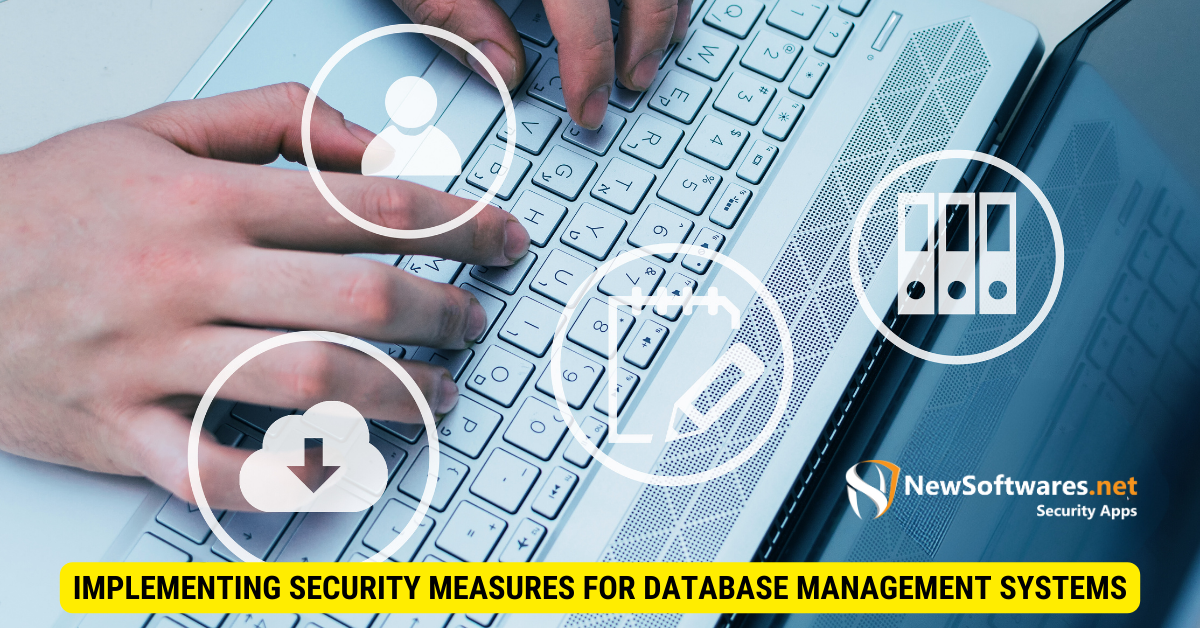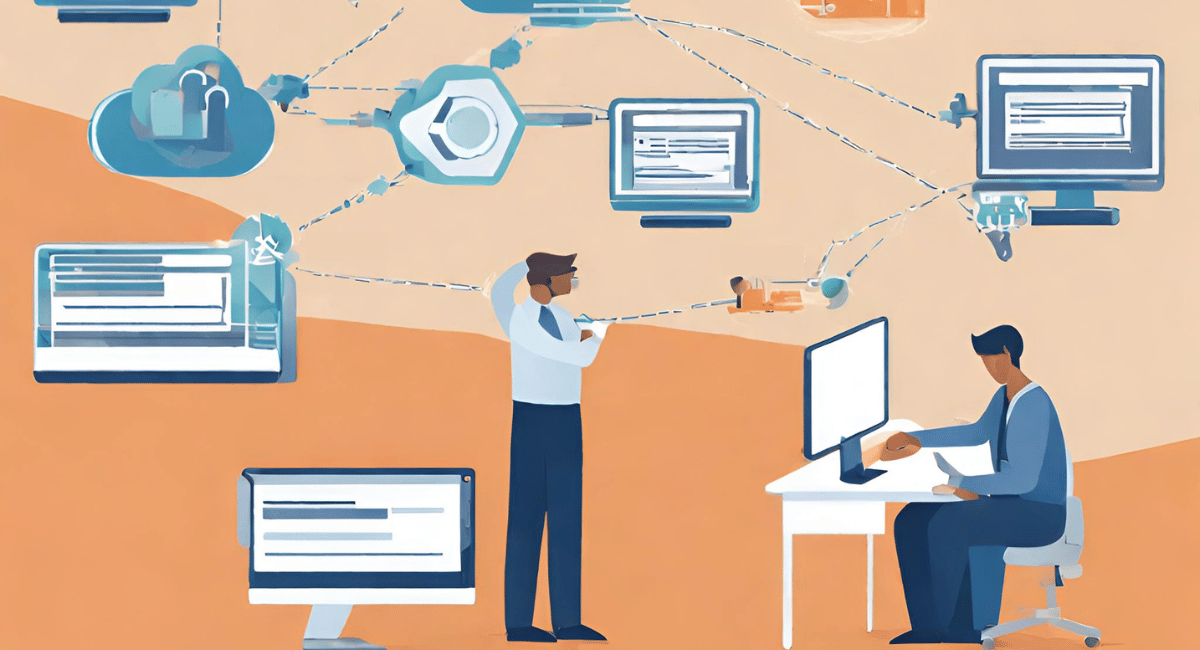To keep database management systems (DBMS) and data-warehousing techniques secure, one must implement robust security protocols, apply regular software updates, restrict access based on roles, regularly backup data, and routinely monitor and audit database activities.
In today’s technology-driven world, database management systems and data warehousing techniques are crucial in organizations of all sizes and industries. These systems enable businesses to store, manage, and access data efficiently. However, with the increasing threat of cyberattacks, it is vital to ensure the security of these systems. I will aim to provide valued insights into understanding the concepts of database management systems and data warehousing techniques, highlighting their key features and role in business operations. Additionally, it will explore the importance of security in these systems, potential risks and threats, and the measures that can be executed to enhance security.
Understanding Database Management Systems and Data-Warehousing Techniques

Database management systems (DBMS) are software requests that facilitate database creation, organization, and maintenance. They provide a user-friendly interface for administrators and users to manage data effectively. DBMS stores data in a structured format, allowing for efficient storage, retrieval, and manipulation.
On the other hand, data warehousing refers to centralizing data from various sources into a consolidated repository. Data warehouses provide a comprehensive and unified view of an organization’s data, enabling businesses to make informed decisions based on accurate and up-to-date info.
Regarding database organization systems, several key features enhance data management and operational efficiency. One of these features is data integrity, which ensures the accuracy and consistency of data. With data integrity, businesses can trust that the information stored in the database is reliable and error-free. Additionally, DBMS offers security measures to protect sensitive information from unauthorized access. This is particularly important in today’s digital age, where data breaches and cyber threats are increasing.
Concurrency control is another essential feature of DBMS. Multiple users can access and modify the data simultaneously without causing conflicts. Different departments or teams can work on the same database without worrying about data inconsistencies or overwriting each other’s changes. Data consistency is also crucial in DBMS, ensuring that data remains valid and reliable throughout the system. Any updates or modifications made to the data are properly reflected across all relevant tables and records.
One of the most significant advantages of DBMS is data independence. This feature enables changes in the database structure without affecting the applications or programs using it. In other words, businesses can modify the database schema without disrupting the functionality of the software that relies on it. This flexibility allows organizations to adapt and evolve their data management systems as their needs change.
The Role of Data-Warehousing in Business
Data warehousing plays a crucial role in business decision-making processes. Data warehousing provides a comprehensive view of business operations by centralizing data from various sources. This consolidated data allows businesses to identify trends, patterns, and relationships within their data, leading to valuable insights and informed decision-making.
Businesses can generate accurate reports and perform in-depth analysis with a data warehouse. This enables them to evaluate their performance, classify areas for improvement, and make strategic decisions to drive overall business growth. For example, a retail company can analyze sales data from different stores, identify top-selling products, and adjust its inventory accordingly. This data-driven approach helps businesses optimize operations, reduce costs, and maximize profits.
Data warehousing also facilitates strategic planning. A centralized data repository allows businesses to analyze historical trends and forecast future performance. This allows them to set realistic goals, allocate resources effectively, and develop strategies to stay ahead of the competition. For instance, a marketing team can use data from previous campaigns to identify successful marketing channels and allocate their budget for future campaigns.
Database management systems and data warehousing techniques are essential tools for businesses in today’s data-driven world. DBMS provides efficient data management and ensures data integrity, security, concurrency control, consistency, and independence. On the other hand, data warehousing enables businesses to centralize data from various sources, providing a comprehensive view of their operations and empowering them to make informed decisions for strategic planning and overall business growth.
The Importance of Security in Database Management and Data-Warehousing
Due to the sensitivity and critical nature of the data stored in database management systems and data-warehousing techniques, ensuring robust security measures is paramount. Security breaches can lead to severe consequences, ranging from financial loss to damage to a company’s reputation.
Regarding database management and data warehousing, security is not just a nice-to-have feature but an absolute necessity. The vast amount of data stored in these systems often includes sensitive information such as customer details, financial records, and intellectual property. This valuable data becomes vulnerable to unauthorized access, manipulation, or theft without proper security measures.
One of the potential risks that organizations face is unauthorized access. Hackers and cybercriminals continuously look for vulnerabilities in database management systems and data-warehousing techniques to gain unauthorized access to sensitive information. Once inside, they can wreak havoc by stealing data, altering records, or even holding the data hostage for ransom.
Data breaches are another significant threat to the security of database management systems and data warehousing techniques. These breaches can happen for various reasons, such as weak passwords, unpatched software vulnerabilities, or social engineering attacks. Once a breach occurs, the consequences can be severe, including financial losses, legal liabilities, and damage to the organization’s reputation.
Malware attacks are yet another threat that organizations need to be wary of. Malicious software, such as viruses, worms, and ransomware, can infiltrate database management systems and data-warehousing techniques, causing data corruption, unauthorized access, or rendering the systems unusable. These attacks can have far-reaching consequences, disrupting business operations and causing significant financial losses.
SQL injections pose a unique challenge to the security of database management systems. This attack occurs when an attacker manipulates a SQL query to gain unauthorized access to the database or extract sensitive information. SQL injections can be difficult to detect and prevent, making them a constant concern for organizations that rely on database management systems.
Insider threats also pose an important risk to the security of database management systems and data-warehousing techniques. Employees or contractors with authorized access to the systems can intentionally or unintentionally misuse their privileges, leading to data breaches or unauthorized access. Organizations must implement strict access controls and monitoring mechanisms to mitigate the risks associated with insider threats.
The impact of security breaches can be overwhelming for organizations. Apart from the immediate financial losses resulting from data theft or fraud, long-term consequences should be considered. A security breach can erode client trust and loyalty, leading to a decline in business and potential legal liabilities. Organizations may also face regulatory penalties and damage to their standing, which can take years to recover.
Investing in robust security measures is crucial to mitigate the risks associated with database management systems and data warehousing techniques. Organizations should implement a multi-layered security approach, including strong access controls, encryption, regular security audits, and employee training programs. By prioritizing security and staying vigilant, organizations can protect the integrity and confidentiality of their data, ensuring the trust and confidence of their stakeholders.
Implementing Security Measures for Database Management Systems

Effective security measures are vital to safeguard database management systems from potential threats. Here are some key techniques:
Authentication and Authorization Techniques
Implementing strong authentication mechanisms, such as passwords, biometrics, and two-factor authentication, helps verify the identity of users before granting them access to the database. Additionally, implementing proper authorization protocols ensures that users can access only the data they are official to view or modify, reducing the risk of unauthorized data manipulation.
Data Encryption Methods
Data encryption plays a crucial role in securing sensitive data. Businesses can protect data from unauthorized access by encrypting data at rest and in transit. Strong encryption algorithms, coupled with robust key management practices, help safeguard the confidentiality and integrity of data.
Ensuring Data-Warehousing Techniques are Secure
Data warehousing techniques are equally vulnerable to security threats, making it essential to implement appropriate security measures. Here are some techniques:
Data Masking and Anonymization
Data masking and anonymization techniques protect sensitive information by replacing real data with realistic yet fictitious data. This ensures that unauthorized users cannot access or misuse sensitive information, reducing the risk of data breaches.
Secure Data Integration and Extraction
When integrating and extracting data from various sources, it is crucial to ensure the security of the data during the process. Implementing secure protocols and encryption mechanisms during data integration and extraction minimizes the risk of data leakage.
Regular Maintenance and Updates for Security
Regular maintenance and updates are vital to secure database management systems and data warehousing techniques. Here are some key practices:
Importance of Regular System Updates

Regularly updating the database management system software and data-warehousing tools ensures that the latest security patches and bug fixes are applied. This helps prevent security vulnerabilities that cybercriminals can exploit.
Routine Security Audits and Assessments
Performing routine security audits and assessments helps identify potential vulnerabilities and weaknesses in the system. This enables businesses to address these issues before cyber attackers exploit them proactively.
Key Takeaways
- Robust Security Protocols: Implement security measures like encoding at rest and in transit to protect sensitive data from unauthorized access.
- Software Updates: Ensure that your DBMS and data-warehousing software are up-to-date with the latest patches to guard against known vulnerabilities.
- Role-Based Access Control (RBAC): Only allow necessary permissions based on job roles. Not every employee should have access to all data.
- Regular Data Backups: Schedule routine backups and test their validity. This ensures that data can be restored during accidental loss or cyber-attacks.
- Monitor and Audit: Continuously monitor database activities. Using audit logs can help track suspicious activities and unauthorized access.
FAQs
Q: Why is encryption important for databases?
A: Encryption ensures that even if unauthorized individuals access data, they cannot decipher the content, safeguarding sensitive information.
Q: How often should I update my DBMS?
A: Regularly. As soon as patches or updates are released, especially if they address security vulnerabilities, they should be applied. Always stay informed about updates from your DBMS vendor.
Q: What is Role-Based Access Control?
A: RBAC is a security model granting access permissions based on the user’s organizational role. This ensures that users only access what they need to perform their tasks.
Q: How do I ensure that my backups are reliable?
A: Regularly test backup restorations to confirm their integrity. Also, ensure backups are stored securely, with encryption if possible, and consider off-site or cloud-based backups for added redundancy.
Q: Why is monitoring and auditing essential for database security?
A: Regular monitoring and auditing allow you to detect unusual or unauthorized activities in real-time or near real-time. This enables quicker response to potential security breaches and helps maintain data integrity.
Conclusion
In conclusion, ensuring the security of database management systems and data warehousing techniques is crucial for businesses today. By understanding the key features of these systems, their role in business operations, and the potential risks they face, businesses can implement robust security measures to protect their valued data. By implementing authentication and authorization techniques, data encryption methods, and secure data integration and extraction practices, businesses can improve the security of their systems. Regular maintenance, updates, and routine security audits and assessments further contribute to the overall security of these systems, reducing the risk of data breaches and unauthorized access. By prioritizing security in database management systems and data-warehousing techniques, businesses can protect their sensitive information and maintain the trust of their stakeholders.
